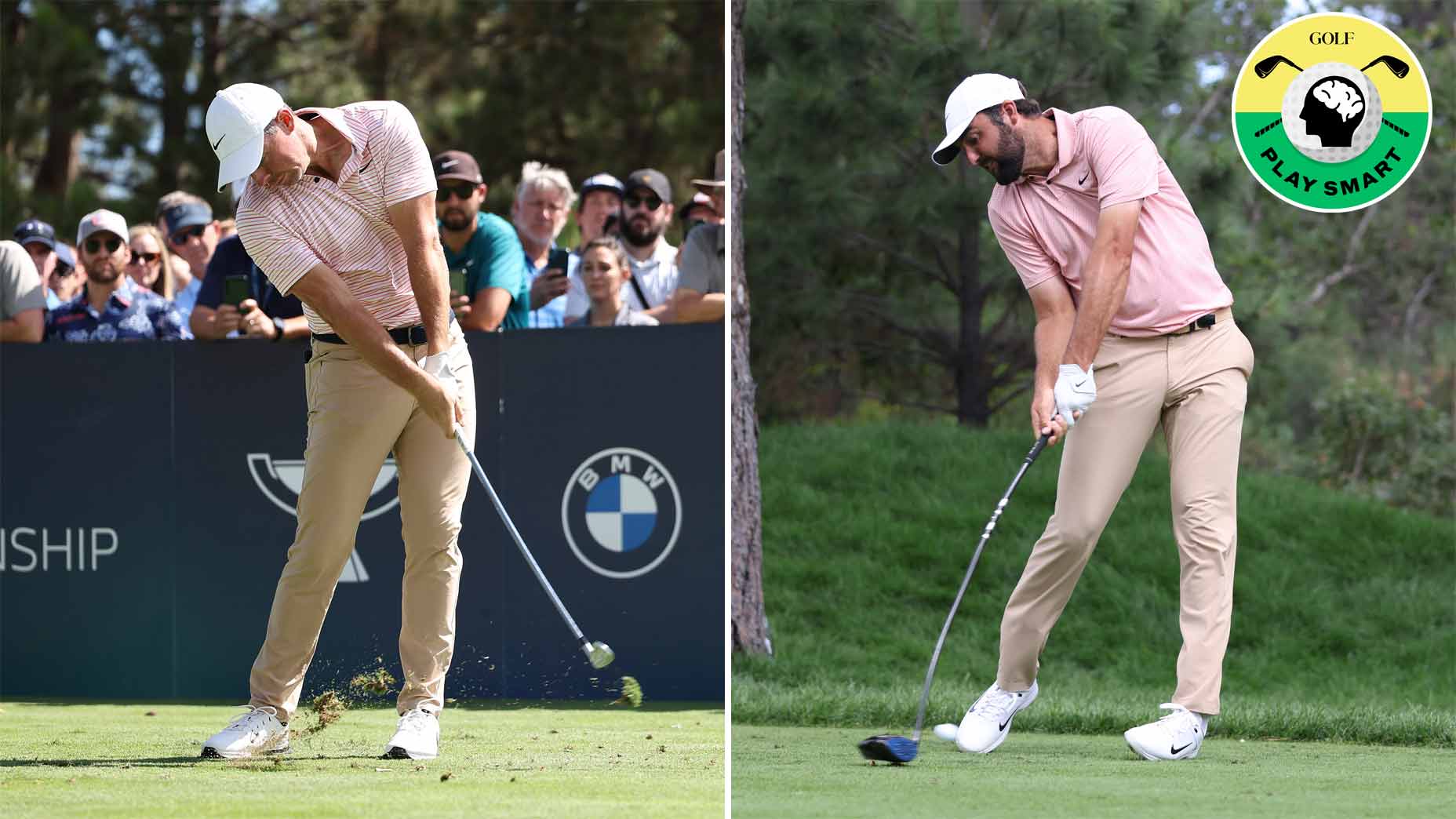
Every golfer’s swing is different, but there are commonalities they share.
Getty Images
Welcome to Play Smart, a regular GOLF.com game-improvement column that will help you play smarter, better golf.
Every golfer has a bit of flare that makes their swings unique.
Take Scottie Scheffler‘s foot action. Or Hideki Matsuyama’s pronounced pause at the top. Jon Rahm’s truncated backswing. Bryson DeChambeau‘s wicked lash. Rory McIlroy’s powerful turn. We could go on and on. Point is, every swing is original.
That’s part of the beauty of golf. Every player has their own way of doing things, and if they can become consistent enough, their potential is endless. As the old saying goes, there’s more than one way to crack an egg.
But while the aesethetics of every swing is different, there are some commonalities that all elite players share. In today’s edition of Play Smart, we explore one of those traits — and explain how incorporating it in your own game can improve your swing.
Disconnect your lower and upper body
The golf swing is made up of a variety of parts moving in concert to hit the ball. The secret to owning your swing is correctly sequencing everything to create the perfect mix of power and control. One of the key elements of this sequencing comes in the form of your turn.
Turning back and through is the foundation of any swing. But you don’t want everything turning all at once. Instead, you want to be able to disconnect your upper and lower body during the turn.
If you watch any high-level player, such as Jazz Janewattananond in the video above, you’ll see they turn their upper and lower bodies independently of one another. This move is key for creating power and balance in the swing.
When you can achieve separation between these two components during the backswing, you are creating tons of potential energy. And when you unwind it all on the way down, that energy is unleashed, creating lots of speed.
This separation is the key for creating easy power — and if you can incorporate it in your own swing, you can create speed just like the pros.

